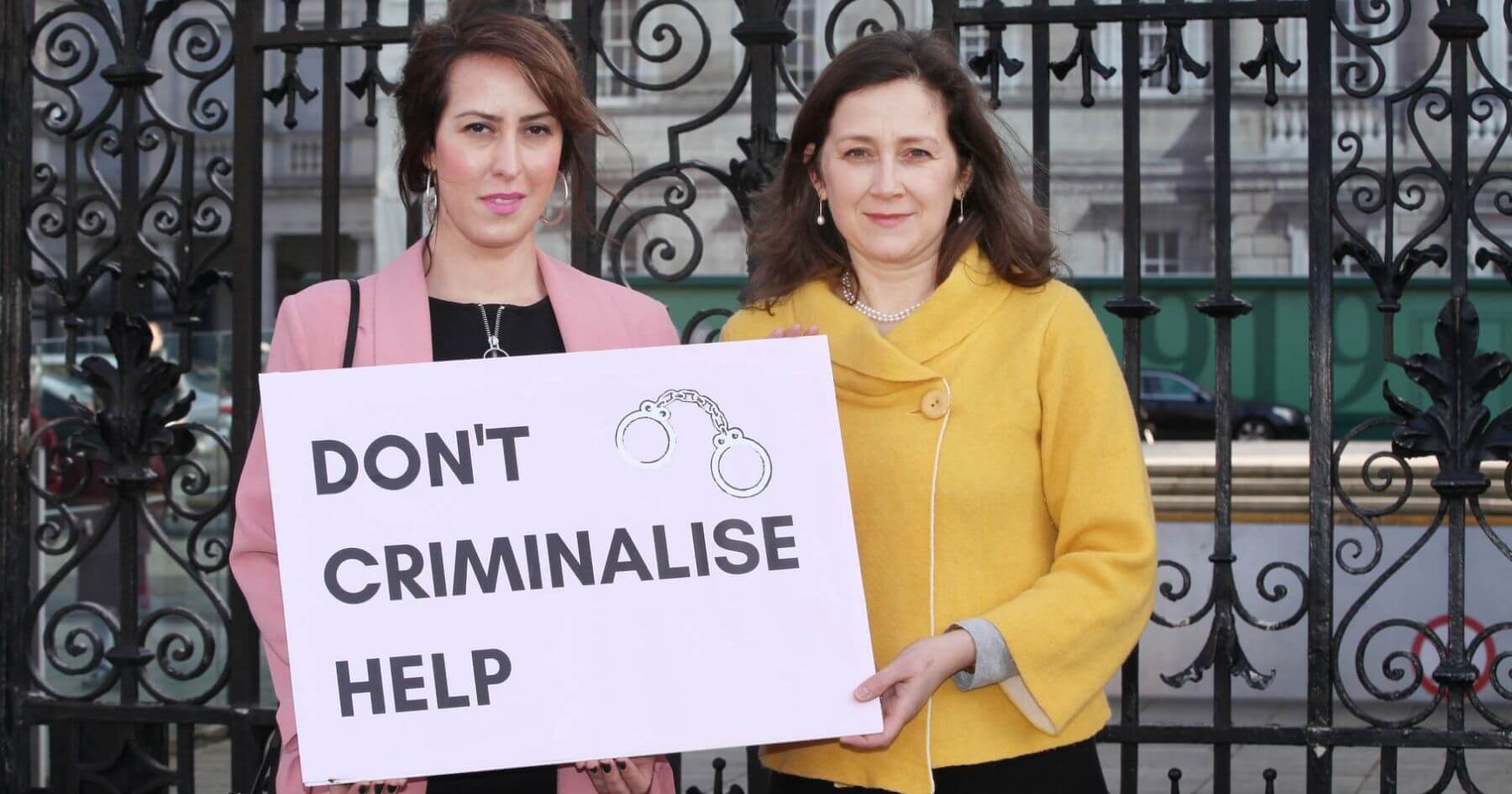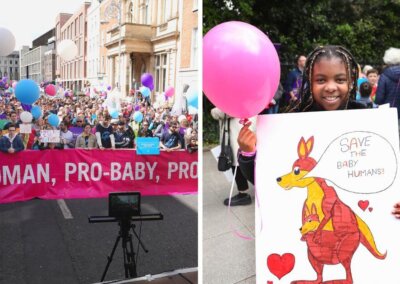Ireland’s Minister for Health has indicated that the Irish Government does not have plans to introduce censorship zones outside abortion facilities.
Since the referendum vote in 2018, there have been ongoing calls from the abortion lobby in Ireland to enforce censorship zones around medical premises where abortions are performed.
The Minister for Health at the time of the referendum, Simon Harris, had also pledged to legislate for “safe access zones”. However, this May, the Department of Health indicated that “a number of legal issues were identified” with the proposal “which necessitated further consideration”.
In a Dáil Éireann debate on Tuesday 13 July, Deputies Neasa Hourigan and Holly Cairns respectively asked the Minister for Health, Stephen Donnelly TD the status of his plans to establish “exclusion zones” around medical facilities; and if he will make a statement on the matter, as proposed by the “Safe Access to Termination of Pregnancy Services Bill” that the Irish Government had previously announced as part of their legislation programme.
In a written answer, he replied: “Ensuring access to termination of pregnancy services remains an ongoing priority for the Department of Health”.
“It was originally intended to provide for safe access to termination of pregnancy services in the Health (Regulation of Termination of Pregnancy) Act 2018”.
A number of legal issues identified
He also affirmed the Department’s previous statement that “…a number of legal issues were identified which necessitated further consideration”.
He went on: “Since services under the Health (Regulation of Termination of Pregnancy) Act 2018 commenced in January 2019, there has been a limited number of reports of protests or other actions relating to termination of pregnancy. This is an extremely positive development. It suggests that these services have bedded in relatively smoothly to date and are becoming a normal part of the Irish healthcare system, as intended”.
“Where problems do arise with protests outside healthcare services, there is existing public order legislation in place to protect people accessing services, staff and local residents”.
The campaign to expand abortion access in Ireland
A review of Ireland’s abortion legislation is currently being undertaken by the Department of Health, while abortion campaigners in Ireland are campaigning for abortion access to be even more expansive.
The ‘Termination for Medical Reasons’ group has stated that its “number one” request is the total ‘decriminalisation’ of abortion for medical practitioners, who can face up to fourteen years in prison if found guilty of providing an abortion outside the provisions of the 2018 Act.
The ‘Abortion Rights Campaign’ is requesting that the ‘DIY’ at-home abortion service, permitted under lockdown regulations, be made permanent. They are also in favour of eliminating gestational limits enshrined in the current abortion law.
A spokesperson for Right To Life UK, Catherine Robinson, said: “The attempts of various groups in Ireland to impose restrictions on pro-lifers who are attempting to offer help and an alternative to abortion is deeply troubling”.
“The Irish Government is right to reject continuing with plans for these censorship zones, when it is clear there is no genuine need for them, as existing law enforcement is equipped to deal with any genuine harassment”.
“However, pro-lifers and free speech advocates alike ought not to be complacent regarding this issue. It is clear from the Minister’s statement that the Irish Government remains sympathetic to the push for censorship zones, and certain pro-choice groups will surely continue to push for them. We must remain vigilant, and make the case for freedom of expression and for the right to help women in crisis outside these facilities, of which there are so many inspirational stories”.












